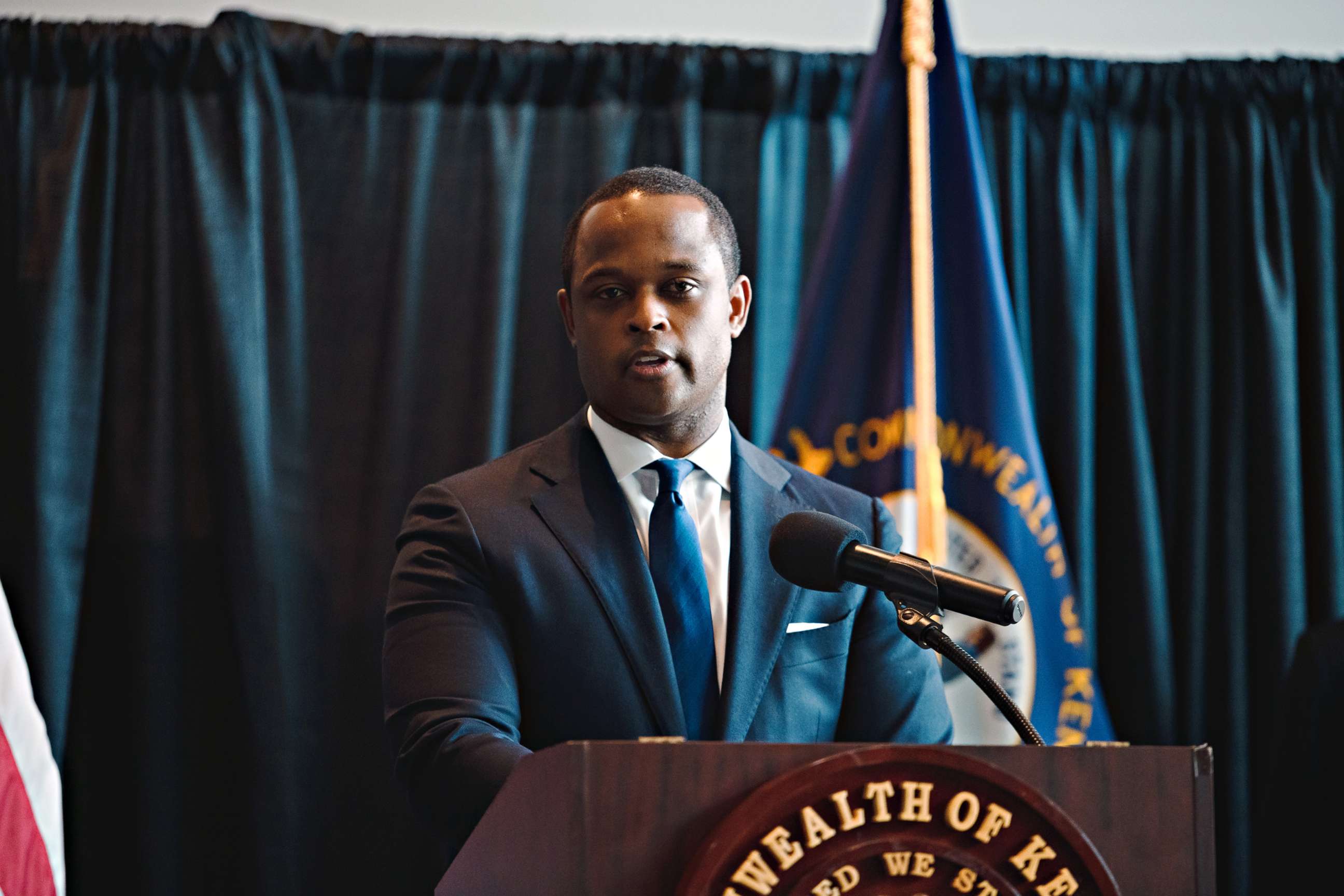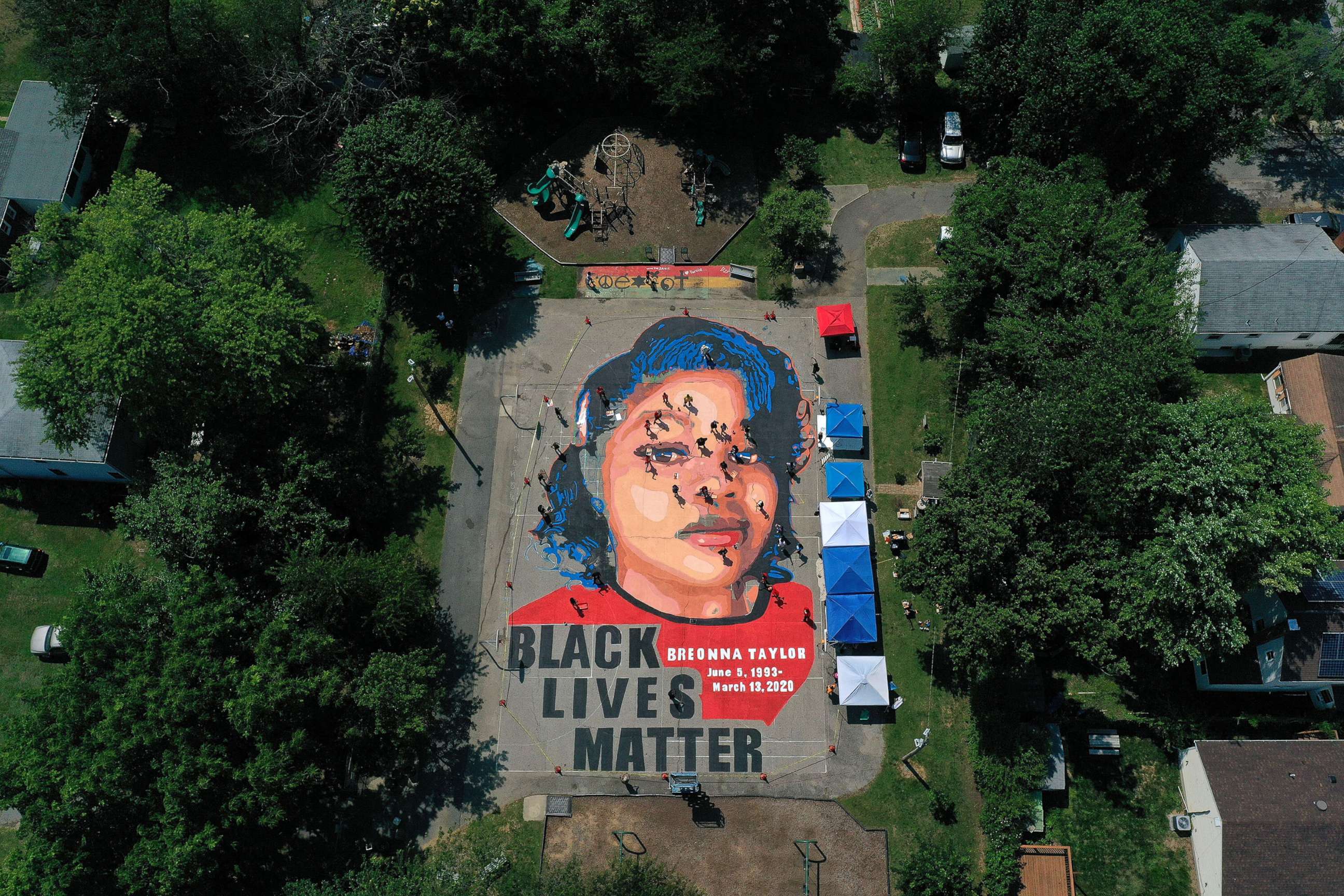Kentucky AG Daniel Cameron asks judge to revoke order, keep evidence sealed in Breonna Taylor case
He said the release could "permanently taint" jurors in the forthcoming trial.
Kentucky's attorney general and the attorney for former Louisville Metro Police Department officer Brett Hankison combined forces in a joint motion earlier this week asking a judge to revoke a previous order to release evidence in the Breonna Taylor case to the public.
Attorney General Daniel Cameron and Hankison's attorney, William Stewart Mathews, said they planned to present the motion in court Monday in an effort to get Circuit Judge Ann Bailey Smith to either revoke her order to release evidence in the case, or seal it until the ex-officer's trial.
In the previous ruling, Smith ordered the AG to redact any personal information as a safety precaution, but Cameron and Mathews argued that the evidence could still endanger those involved if made public.
They also argued the releasing files might "permanently taint potential jurors" in Hankison's trial and claimed that people involved in the case had received death threats.

"The parties submit that filing discovery in the record would allow said materials, many of which may never be admitted as evidence in court, to be published by the media, and permanently taint potential jurors for trial of this matter," the motion said. "Redaction of personal identifiers does not remedy the problem."
Separately, the attorneys cited "unprecedented" media coverage and the "anticipated wholesale posting of the entire discovery in this matter on the internet" as reasons to keep the evidence private.
"The parties in this matter have received threats of violence in regard to this case. Publishing the Discovery could only serve as an impetus for more of the same," the documents said. "The parties agree that the administration of justice can best be served by limiting materials published in the record to the evidence actually admitted in court."
Taylor, 26, was shot and killed by Louisville police officers after they executed a "no-knock" warrant while investigating a suspected drug operation linked to her ex-boyfriend.
Taylor and her boyfriend, Kenneth Walker, were in bed sleeping on the night of March 13 when they heard a commotion outside; after a short exchange with police, Walker says he fired his gun in self-defense, saying he thought the home was being broken into, according to police.

The plainclothes officers returned gunfire, firing several shots and fatally hitting Taylor, police said.
Kevin Glogower, who is now representing two anonymous grand jurors in the case, had previously asked the judge to release discovery information and to allow jurors to speak publicly, despite long-standing practices against doing so.
He said he filed the motion over concerns about public trust and transparency, and accused Cameron of using the jurors as a shield to deflect accountability. Cameron's office denied those claims and said it was "confident" that it had presented a thorough case.
Taylor's family also advocated for evidence to be released in the case and complained about the officers not being charged for the young woman's death specifically. Hankison is facing three counts of wanton endangerment, but neither he nor the two other officers involved in the shooting were charged in connection with Taylor's death.
The charges against Hankison, who fired 10 shots into Taylor's apartment, stem from the errant bullets that penetrated a wall of the residence and entered a neighboring apartment occupied by a child, a man and a pregnant woman, Cameron said at a news conference following the grand jury's announcement.



